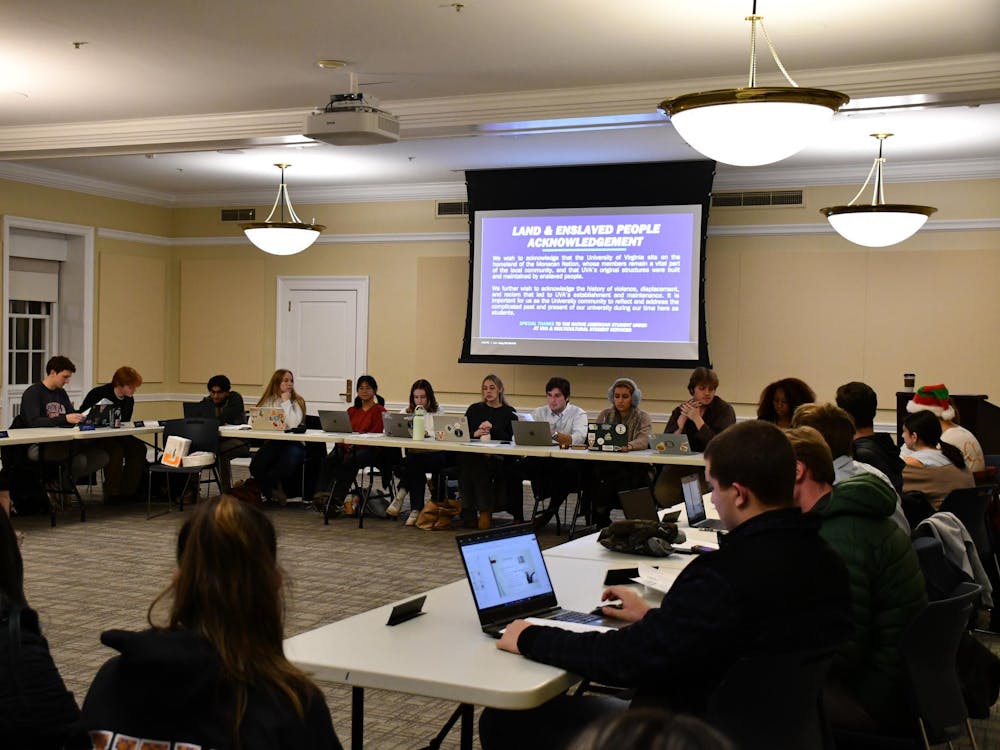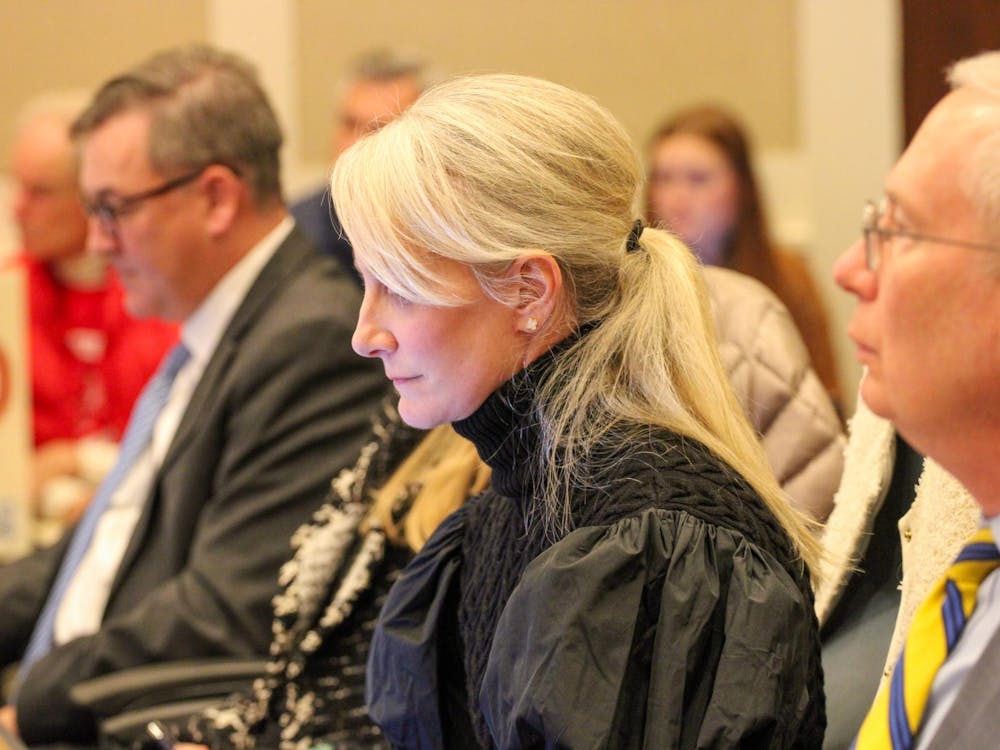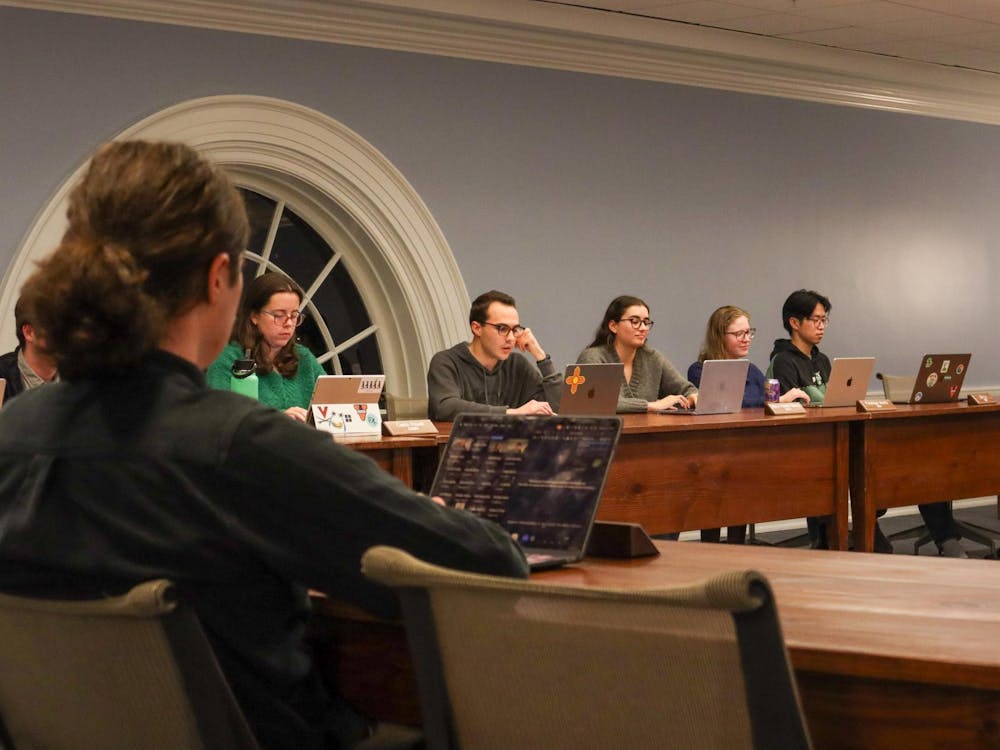Adding to the recent influx of on-Grounds recruiters, Nigel Morris, president and chief operating officer for Capital One Financial Corporation, came to Alumni Hall last Tuesday to discuss why his company has a successful working environment.
The company's casual and unique management style and image found are the result of the path that Morris followed before founding the company with CEO Richard Fairbank.
"We [Morris and Fairbank] realized that there was a better way to do the credit card business. We believed we could compete with the banks, taking advantage of the fact that they didn't see it through the same lens," Morris said.
Since its inception in 1992, Capital One has seen an earnings growth of 700 percent, increased its customer base by 800 percent and its stock price has skyrocketed by 1,200 percent.
Capital One was founded as an offshoot of Signet Bank's credit card operations, and with 20 million customers, it is one the nation's largest credit card distributors. For the past five years, the company has been an independently traded company, and has experienced a return on equity of over 20 percent each year.
Morris began to see the need for a new kind of credit card company during his years in school.
"I was undergraduate in the U.K., and I studied experimental psychology and doing some consulting... I really enjoyed that, but what I was doing was answering questions that I didn't think were the right questions," Morris said.
Morris received his Masters of Business Administration at the London Business School at Warton.
"That's where I met my partner Rich Fairbank," Morris said.
Morris went on to point out several major differences between Capital One and most banks. The first was their "Information Based Strategy." This strategy bases corporate decisions on data and facts, rather than simply acting upon an executive's "gut feelings."
Morris emphasized that, even as a new employee, "you can test out ideas right from the beginning. We test out over 27,000 marketing ideas each year."
Another distinctive feature about Capital One is their commitment to their employees' happiness. In 1999, Fortune magazine named Capital One one of the "100 Best Companies to Work for in America." Part of this rating may be attributed to perks such as three weeks of paid vacation in the first calendar year of work, health benefits from day one and "fun money" given to offices to plan activities.
"This is not entirely altruism," Morris said. "Happy people work harder, happy people come up with better ideas, happy people are more dedicated to our customer base."
Everyone from executives down refers to each other on a first-name basis. Morris describes the environment as a "cool place" to work.
Altruism at Capital One is also found in another market -- through their work with at-risk youth. In addition to offering scholarships, Capital One employees work closely with the youth of Richmond, home to most of the company's operations.
"Putting something back into the system is not about writing a big check," Morris said.
The company's efforts are demonstrated by programs such as having financial analysts tutor Richmond youth in subjects like math.
Several University alumni seem to have found their own corporate success at Capital One. James Wolf, a 1990 Commerce school graduate, is now the cash manager for the company.
Wolf cited the company's growth and the relaxed corporate culture as reasons why he works at Capital One.
"The company is just growing tremendously and that helps make it enjoyable," he said. Being at "a company that's doing well financially makes it easy to be at the company. It really is an environment where you get along well with your co-workers. You get a chance to develop some relationships with others."
Diana Sun graduated in 1975, from the second full class of women to graduate from the University. Sun came to Capital One from the Department of Commerce, where she was a White House appointee working on international trade issues.
"I got called to talk to Capital One, and the more I learned, the more fascinated I became," Sun said. "It was the nicest, smartest group of people I had ever met."
Sun now serves as the head of corporate communications at the company.
Current University students found Capitals One's presentation engaging. "I really like the way that everyone at the company seems important," third-year College student Chad Holeman said. "Everyone's ideas get to be heard."
Third-year College student Shayla Brown said she was impressed with the employees she met.
"Everyone is so willing to talk, and they all mention how much they enjoy their work environment," Brown said.






